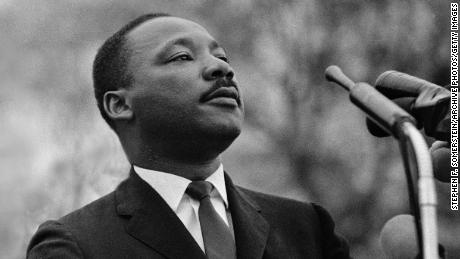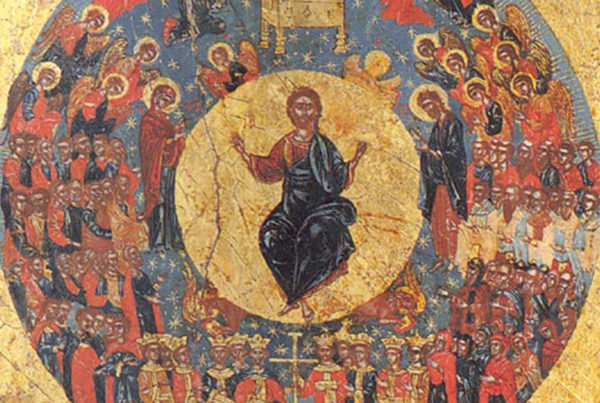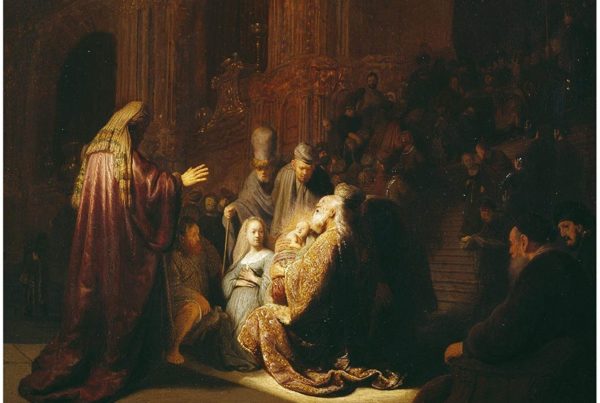Life is full of serendipity. The (rather haphazard) decision made earlier this summer to preach through a book that had long been a favorite of mine, Ecclesiastes, has turned out to be exactly that. Something about this book really struck a chord with many in our community (both near and far – to my surprise and delight, I got a lot of response from our listenership around the country, whom we count as “the community beyond the community”), and for that I have been incredibly grateful.
All good things must come to an end, as they say, and so last night I preached the last of 15 messages on Ecclesiastes, trying to tie a nice bow on a fairly “enigmatic” book. Throughout Qohelet’s work (“Qohelet” is the Hebrew title for the book, and it basically means something like “The Teacher”), two themes have sat side-by-side, juxtaposed, as it were, without any apparent resolution: all of life is vapor, on the one hand, and yet we are called to rejoice and celebrate, on the other. How these things fit together as we live out this enigmatic existence “under the sun” has not been altogether clear.
But that has been because, to a certain extent, Qohelet has been withholding. As the book draws to a close, the Teacher opens up for us a horizon BEYOND “the sun”:
6 Remember him (your Creator)—before the silver cord is severed,
and the golden bowl is broken;
before the pitcher is shattered at the spring,
and the wheel broken at the well,
7 and the dust returns to the ground it came from,
and the spirit returns to God who gave it.
And then later:
13 Now all has been heard;
here is the conclusion of the matter:
Fear God and keep his commandments,
for this is the duty of all mankind.
14 For God will bring every deed into judgment,
including every hidden thing,
whether it is good or evil. (Eccl 12)
Several weeks ago, a friend of mine (who’s been following the series closely and really enjoying it) asked me, “So do you think Qohelet believes in the afterlife?” At the time, based on where we were in the series and forgetting what was to come in the book, I wasn’t completely sure. But, in my opinion, chapter 12 leaves no doubt. That which is lived “under the sun” is NOT the whole story. Our bodies will one day, one way or another, crumble. The silver cord will be severed, the golden bowl will be broken, and the spirit will return to the One who gave it. And then, the whole of our history, who we were, what we became, what we did, will stand before God. As one commentator put it:
What returns to God is a spirit fitted out with the person’s whole known or hidden history… That is, the person enters into the fullness of life, with everything that his life has been. The breath brings with it the entire history of that particular, unique person who has lived his life in God’s presence.”
At the outset of his work, Qohelet asked, “What does main gain from all his labor with which he toils under the sun?” (1:3) In the immediate context of the chapter, the answer was pretty clear: absolutely nothing. Now, however, with chapter 12’s perspective in mind, we may revise our answer:
Question – What does a man gain from all his labor?
Answer – A fitness for everlasting communion with God.
Seen in this way, Ecclesiastes reads something like the Christian classic Pilgrim’s Progress… everything we experience has the character of a test designed to chisel and shape… not unlike the wilderness wanderings of Israel…
Ch 1 – How will we handle the challenge of the (seemingly) endless cycles of life?
Ch 2 – How will we handle the challenges of pleasure, wisdom, and work?
Ch 3 – How will we handle the challenge of limited knowledge?
Ch 4 – How will we handle the challenge of community and social life?
Ch 5 – How will we handle the challenge of our tongues?
Ch 5/6 – How will we handle the challenges of wealth?
Ch 7/9 – How will we handle the challenge of certain death?
Ch 7 – How will we handle the challenge of our own moral incapacity?
Ch 8 – How will we handle the challenges of corrupt authority and a corrupt “system”?
Ch 9 – How will we handle the challenge of living in a morally upside-down world?
Ch 10 – How will we handle the challenge adapting to reality, even when it is enigmatic?
Ch 11 – How will we handle the challenge of uncertainty?
Will we… throw in the towel and cave into the twistedness?
Will we… cower in fear or take the coward’s way out by trying to avoid it all?
Or will we… fear God and keep his commandments, right in the midst of the “havel”, knowing that…
All of Life is a crucible… and we are being prepared, whether we realize it or not, for an unending existence in God’s world… as C.S. Lewis so famously put it in “The Weight of Glory”:
It is a serious thing to live in a society of possible gods and goddesses, to remember that the dullest and most uninteresting person you can talk to may one day be a creature which, if you saw it now, you would strongly be tempted to worship, or else a horror and a corruption such as you now meet, if at all, only in a nightmare…it is immortals whom we joke with, work with, marry, snub, and exploit–immortal horrors or everlasting splendors.
…and of course the important point that Lewis makes over and over and over again is that our choices in the here and now directly impact whether we shall become one (an everlasting splendor–a creature complete in virtue and radiant with all the glory of God) or the other (an “immortal horror”–a creature closed in on itself, immune to God’s goodness, self-inoculated against His glory). I honestly don’t think that most people, Christian included, really believe this or live this way. Christians in particular seem to me to be more interested in defining who’s “in” and who’s “out” (that is, who’s prayed the prayer, or gotten baptized, or has the right theology or view of the Bible or eschatology or political position or whatever)–often as some kind of salve to an uneasy conscience–than they are in the very concrete questions of what they are becoming.
Thought experiment: Project the trajectory of your life, the movements and developments of your soul, a billion years into the future. What do you see? Greater love of God and neighbor? Or increasing hatred, anger, selfishness, and self-enclosure? Whatever “eternity” shall be, I can assure you it will be, unless some change takes place, a consummation of the basic trajectory of your life NOW–and the words “heaven” and “hell” are likely perfect words to describe what that consummation shall be. Sobering thought.
It was with those thoughts in mind, and the challenges that Qohelet presented to us in his work, that I wrote the following (which I shared last night in the service). Truth be told, I didn’t really know what I was writing when I started, but by the time it was finished, what had sprung into being was a set of declarations about who I am, who I want to become, and how I will handle the challenges and enigmas of life.
When I had put the finishing touches on them, I thought, “My goodness. I should share these with Bloom.” So I did. And now I’m sharing them with you. For God’s glory and your good. May you and I alike live them, and become all that the Creator intends us to be.
—
In light of the above challenges, and for my part:
1) I will not despair nor rise up in insolence, but will bless God, the giver of the days and the months and the seasons and the years, savoring the repetitiveness of it all as a gift that stabilizes and orients me on planet earth…
2) I will not make an idol out of pleasure but receive it also as a gift and know each pleasure of life to be what it is—a God-given, if limited, pathway to creaturely joy…
3) I will not make an idol out of my work, but instead do what is in front of me to do with skill and grace, for the common good and with thanksgiving, knowing full well that it is all, eventually, going to dust…
4) I will not make an idol out of certitude, but will relax as I find myself enfolded by mysteries around, above, and beyond me…
5) I will not get derailed in my soul by the perils of community, culture, and social life, but will instead keep my eyes on God and keep my feet moving…
6) I will not mouth empty, boastful, manipulative words before God and others, but will instead live quietly and speak truthfully, knowing that I am already loved and already safe in God’s good world, and no amount of talking will ever add to that…
7) I will not make an idol out of riches, nor freight wealth with hopes and expectations that it is simply not capable of bearing, but will instead be open-hearted, open-handed, and deeply generous…
8) I will not fear death, but will instead make it a pathway to wisdom that transforms my life now and fills it with nobility and dignity, paradoxically making the reality of death a gateway to life…
9) I will not wither in the face of my own moral ineptitude, but will instead give myself over completely to God, who Himself IS the Good and the One who leads me into all good…
10) I will not grow cynical or jaded at corrupt authority and broken systems, but will instead keep fearing God and sowing what I believe is right into the “system”, entrusting the outcomes to Him who calls Himself heaven and earth’s only Sovereign and Lord…
11) I will embrace the moment that I am in, right now, always, seizing the day, sucking the marrow out of each experience because life, even if vaporous, is good and God-given…
12) I will not lose sleep over living in a morally upside-down world, but will do my best, personally, to live a life of wisdom, authenticity, and integrity…
13) I will not grow weary of the complexity and subtlety of life “under the sun”, but will instead use it as an opportunity to grow in moral and spiritual refinement, and clear-mindedness…
14) I will not shrink back from the uncertainty of life, but will instead throw myself gladly and wholeheartedly into it, casting my bread upon the waters wherever and as often as I can, knowing that my role in the Story is secure because the Storyteller has promised it and made it so…
15) I will, in all things and at all times, remember that I am a creature called to live forever in everlasting communion with God, and that the choices that I make today—how I handle each of the above challenges—directly impact whether or not I will become such a creature, and what sort of creature I shall become… a creature radiant with the glory of God, or else withered and shrunken and darkened forever by folly…
16) I will FEAR GOD and KEEP HIS COMMANDMENTS, knowing that this is the Alpha and the Omega of what it means to be “human.”
Amen.




Andrew, Wait an amazing way to wrap up Ecclesiastes! I was very moved by your message last night and so glad you posted this on your blog too. I was looking for a refresher this morning. Have a blessed week.
DT
Thanks man! Glad it hit ya in the right spot… have a marvelous week as well 🙂
Great thoughts brother. If you wrote a book on these I’d buy it 🙂 Hope all is well out in Denver. I finally left chicagoland for PA. I often miss the Trinity fellowship and community. Good thing we are blessed with the internet.
Haha… thanks man! What’s going on in PA?
Hope you’re well…
I’m a college and young adult pastor outside of Harrisburg. It’s been fun to watch God work here so far.
Oh that’s sweet man…
Read this on my phone when you posted it the other day. Really like the “thought experiment” part; the life trajectory thing was really thought provoking. I even found myself using it as an example in a conversation I was having yesterday. It sounds very much like the idea C.S. Lewis put forth in The Great Divorce, and, wow, really puts life into perspective. Really, really glad I read this post, I think I’ll be using that thought experiment for the rest of my life – both for my own reminder and for the perfect illustration of the mental orientation of deification thinking.
Thanks bro.
Oh for sure… Lewis is so determinative of much of my thought… glad it was helpful!